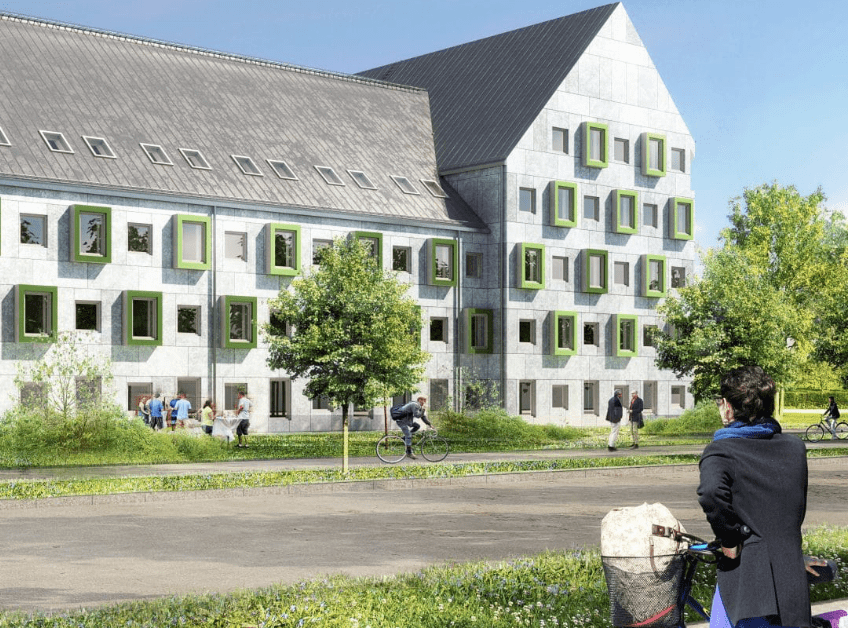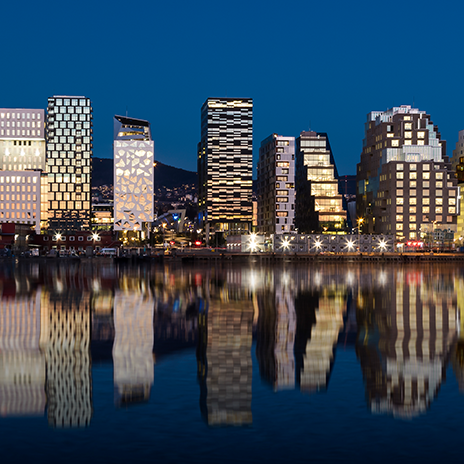AF Bostäder needed to become resilient

Right before the collaboration with Position Green commenced in 2017, AF Bostäder expanded their sustainability focus beyond the environmental aspects to also include social and financial aspects. This expansion facilitated a new approach to sustainability reporting following the GRI standards. Data that had previously been collected and shared department-to-department had to become shareable across all divisions and stakeholders.
To achieve a higher degree of transparency AF Bostäder looked for a digital tool that delivered the same value as tools for financial reporting: guidance, resilience, continuity as well as secure and traceable data storage. In their quest for such a tool, AF Bostäder evaluated several alternatives and chose to partner up with Position Green Platform based on its user-friendly interface and flexible functionality.
A dedicated tool
AF Bostäder uses Position Green’s ESG software to measure and drive their sustainability work and to provide the management team and board of directors with adequate and reliable data for their sustainability report. At the beginning of the process, AF Bostäder chose to retroactively add data from previous years to get comparable statistics right after implementation. Implementing the tool required no lengthy process despite users with various technical skills and prerequisites. Having a web-based tool was considered a substantial advantage since it gives access to data and statistics at all times. From AF Bostäder’s perspective, Position Green arrived at the perfect time.
Sustainability has become tangible
Position Green has indirectly contributed to AF Bostäder reaching and working towards their defined sustainability KPI’s. Among many features offered by Position Green, AF Bostäder has especially benefited from the ability to delegate reporting tasks to colleagues or external partners that have a direct responsibility for the requested data. To store all sustainability data in the same place – and in a place that is accessible to everyone involved in the reporting process – is both time-saving and cost-efficient. Through the tool’s visualization features, AF Bostäder can compare their sustainability work over time. To store sustainability data in a manner that is as traceable and secure as storing financial data facilitates both the accounting process and ensures resilience and continuity in the sustainability process. With higher demands being placed on sustainability data for accounting purposes, AF Bostäder has witnessed a heightened status of sustainability data – and in effect, their sustainability work at large.
What is important for you when it comes to reaching your sustainability goals?
AF Bostäder will prioritise its mission as long as Lund University exists, and in order to guarantee long-term success we must think sustainably. Beyond AF Bostäder’s fundamental guiding principles, our approach to sustainability is integrated to the entire organisation, which has been a strategic decision by the management team and Board of Directors. Our most important stakeholder, the student body, places high demands and expectations on our continuous sustainability work, which influences every decision we make. AF Bostäder has several sustainability focus areas, but one that I am particularly passionate about is our goal to become fossil-free by the year 2020. Within this target we are focusing on electricity, heating and transportation. After having checked off fossil-free electricity (in 2017) and heating (in 2018) we are now putting all our efforts into eliminating all fossil-dependent transportation modes, including business travel, from our direct footprint. I see the movement “bike-friendly workplace”, initiated by the municipality of Lund, as a positive nudge to encourage our employees to rethink how they get to and from work in the most sustainable manner. Currently, I’m on the look-out for bicycle enthusiasts within the organisation to ignite important behavioural changes amongst their colleagues. When we initially set the goal to become fossil-free by the year 2020 it was considered too ambitious, but having reached several critical milestones already, we can safely say that it is efficient to set high targets. One of AF Bostäder’s sustainability priorities is to counteract the lack of housing among students. Over the next few years we are committed to building 1250 new homes, while also investing in renovating our older properties. A major focus for us in pulling this through is to ensure that AF Bostäder’s sustainability principles are adhered to throughout the entire supply chain, including by our sub-contractors.“
Which role models inspire you in your everyday sustainability work?
Ever since AF Bostäder published its first sustainability report in 2017, our inspiration has come from the public property sector, and companies such as LKF and MKB, but also businesses in adjacent sectors like energy such as Kraftringen. For more general role models I find myself very inspired by Fossilfritt Sverige (Fossil-free Sweden) and their roadmaps to getting various industry sectors to convert to fossil-free alternatives as a joint effort. Personally, I am driven by the goal that we can become a fossil-free welfare state, and I think that Fossilfritt Sverige sets tangible targets that every company and organisation can achieve.
Do you have any advice, ideas or perspectives that you want to share with sustainability colleagues from other organisations?
I would like to take the opportunity to highlight the fantastic benefits of working with the knowledgeable and sustainability-oriented students of Lund University, who are available for internships, master thesis positions and as trainees. Working closely with these students is both rewarding and positively challenging since they offer completely new perspectives and critical thinking – which is needed by all organisations.


